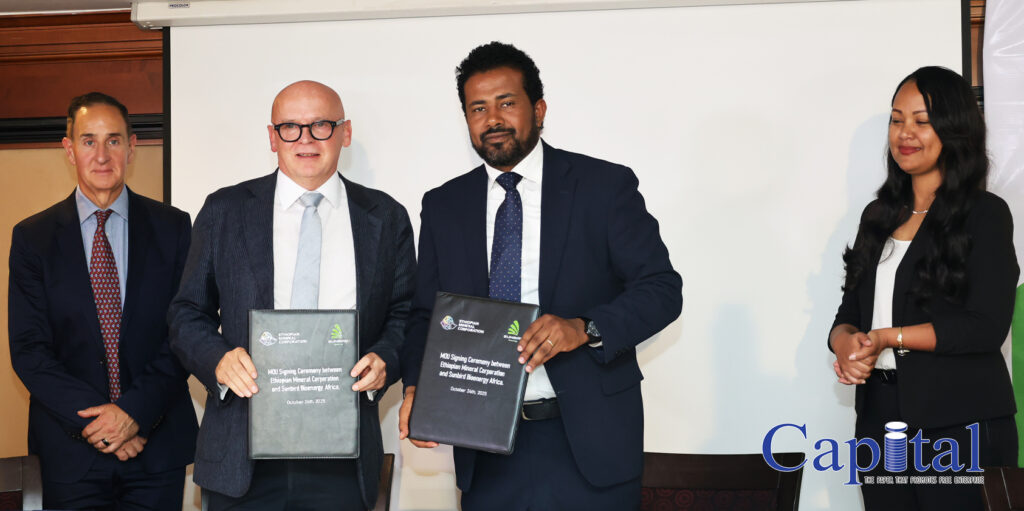Leading bioenergy developers have urged African governments to maintain long-term policy certainty, particularly on feedstock supply and biofuel blending mandates, to fully realize the continent’s vast green energy potential. This message was underscored during the signing ceremony of a cooperation agreement between the Ethiopian Mineral Corporation (EMC) and Sunbird Bioenergy Africa, aimed at advancing bioenergy projects in Ethiopia.
Tewodros Getachew, CEO of EMC, and Richard Bennett, CEO of Sunbird Bioenergy Africa, emphasized the crucial role of government support in attracting private investment vital to Africa’s sustainable energy transition. Speaking at the event, Tewodros framed challenges such as climate change and sustainable development not as crises, but as calls to leadership and action. “Our vision is clear and unwavering: to transform Ethiopia into a beacon of green prosperity powered by clean energy, driven by a circular bioeconomy and innovation,” he said.
Drawing on EMC’s 18 years of experience, Tewodros noted that the corporation has been instrumental in the country’s wealth creation and is now aligning national goals with global sustainability objectives. The partnership with Sunbird Bioenergy Africa marks a significant step toward leveraging Ethiopia’s rich agricultural resources to produce clean energy.

Sunbird Bioenergy Africa brings extensive expertise in developing large-scale bioethanol and biofuel projects across the continent. Richard Bennett expressed strong confidence in Ethiopia’s market, attributing it to favorable policy frameworks. He thanked the Ethiopian government, ministries, and partners including the World Bank for fostering a conducive environment, highlighting key policies related to biofuels, blending obligations, and private sector participation.
“The existence of a raw material policy, biofuel blending mandates, and authorization of private investment has made it much easier for us to enter the market,” Bennett noted.
Sunbird’s business model integrates three core elements: an agricultural unit partnering with both large farms and small producers to ensure sustainable feedstock supply; a biorefinery converting agricultural raw materials into renewable fuels; and a fuel business focused on distribution.
The company is already the largest agricultural employer in Sierra Leone, operating a plant that produces 60 million liters of renewable fuel annually. In Zambia, Sunbird is developing a cassava-based biofuel project aimed at meeting 20% of the country’s petroleum demand. This initiative supports 500 direct jobs and 20,000 small-scale farmers.
Bennett explained that the model centers on replacing imported fuel paid for in foreign currency with locally produced alternatives: “Stop spending money in other countries. Buy from your local farmers.”
With EMC’s backing, bioenergy development in Ethiopia is gathering pace. The initial project phase will focus on converting cassava into ethanol. Cassava is favored due to its sustainability, suitability for smallholder farmers, and ability to maximize community involvement while minimizing carbon footprint.
The first phase aims to produce 60 million liters of ethanol annually, utilizing approximately 10,000 hectares of farmland and providing income for 10,000 farmers. This ethanol will meet E10 transportation fuel standards and growing demand for clean cooking fuel.
Highlighting the urgency of advancing the clean cooking sector, Bennett noted that despite established cookware factories backed by partners like Project Gaia, a shortage of local biofuels continues to constrain the market.
Bioethanol cooking fuel offers a sustainable alternative to charcoal, which remains a major contributor to urban air pollution and deforestation. Looking ahead, the partnership plans to conduct a feasibility study for a sustainable aviation fuel (SAF) project designed to produce 40 million liters annually, supporting the aviation industry’s increasing need for renewable fuel blending.







